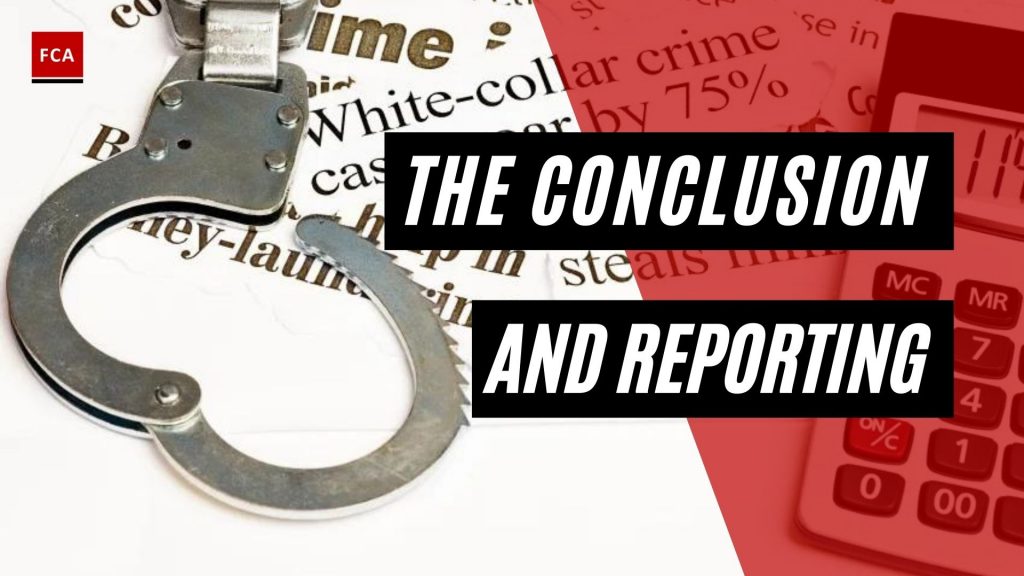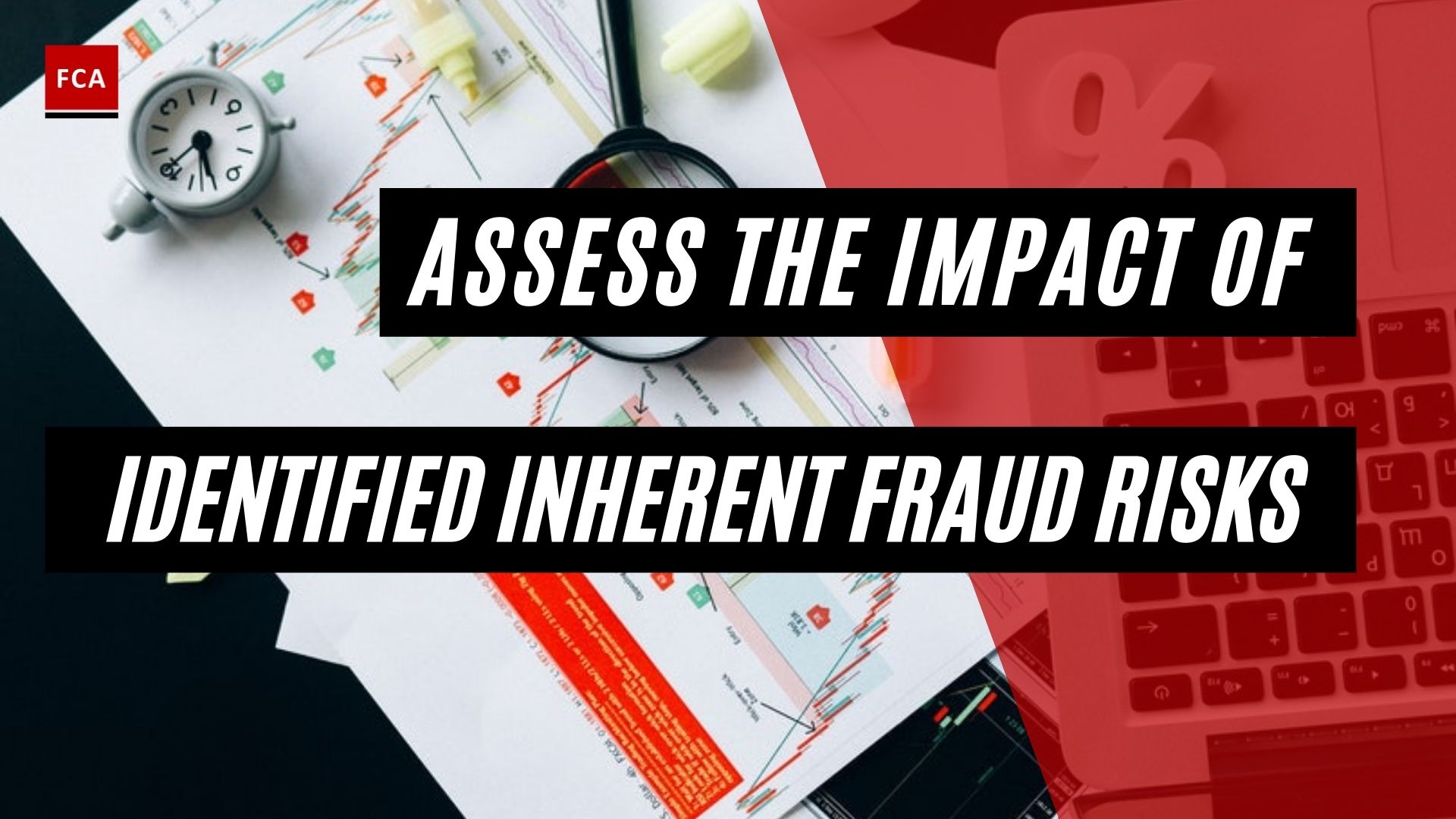The conclusion and reporting. After gathering sufficient appropriate evidence related to the fraud incidents, the fraud investigation team or experts corroborate the evidence and find similarities in the patterns indicating the actual reasons and hints of the fraud. The fraud investigation team must be satisfied that the evidence gathered is strong to conclude the fraud case.

Conclusion And Reporting
Reports that are primarily analytical in nature usually necessitate conclusions. These are occasionally combined with recommendations. Conclusions are frequently used in proposals to provide a final word to the readers potential donors because having an impact at the end of the proposal is important. By including conclusions, you can also improve executive summaries and large sections of major reports. In some lengthy reports, the conclusion may take up an entire section or chapter. In such cases, you will frequently see conclusions for each chapter.
You can reinforce the main points of the document in the conclusion. A conclusion summarizes the entire report, drawing inferences from the entire process about what was discovered or decided, as well as the impact of those discoveries or decisions.
Even in a short report, including a conclusion is beneficial. A conclusion shows good organization. It can help the reader’s task if it is written well. With a good conclusion, you can connect all of the threads of the report details and relate them to the original purpose for writing the report. In other words, the conclusion should reassure the reader that the purpose of the report has been met.
Fraud Investigation
Fraud investigation is the practice of using accounting and investigative skills to help determine whether criminal matters such as employee theft, securities fraud (including falsifying financial statements), insurance fraud, and identity theft have occurred.
We may also recommend actions to reduce future risk of loss. In civil cases, such as searching for hidden assets in divorce cases, investigative work may be required. At Insight, we look beyond the numbers to understand the underlying issues in questionable situations. This accounting is a combination of specific skills that are becoming more in demand as business complexity grows.
A fraud investigation team is required to conclude the investigation based on the information and facts discovered during the investigation process. To conclude fraud investigations, the investigation team must be confident enough to conclude the case. There should be reached a level of understanding and satisfaction regarding the fraud patterns and indications of real culprits with embezzled amounts.
The fraud investigations team is required to document the conclusion sequentially and logically. All the facts and figures including related evidence are required to be documented in relatable and sequential form.
The minimum key information recorded by the investigations team as part of a fraud case includes fraud case planning, interviews conducted with the suspects, names, designations, location of the interviewees, information obtained with dates of receipt, observations performed on-site, physical counting of assets, and visits made to the locations and sites.
Other necessary information includes the data obtained and analyzed from the computers and electronic devices, sampling methods used, and the level of personnel investigated in the organization or the company.
The fraud investigation team is required to conclude the cases and issue the final investigation report to the board of directors or senior management of the company. The fraud investigations report is required to be reviewed by the head of fraud and the fraud committee formed in the company.
Senior Management Level Committee
The fraud management committee (FMC) is a senior management level committee that is responsible for:
- Supervising the fraud cases,
- Reviewing the fraud incidents that occurred,
- Reviewing and providing feedback on the fraud investigation report, and
- Reporting to the Board of Directors regarding the fraud conclusions
The fraud investigation team prepares a formal fraud conclusion report where all the facts and figures with details of evidence obtained are covered. The fraud investigation report is addressed to appropriate authorities such as the board of directors or the CEO of the organizations. In the fraud investigation report, a relevant conclusion is arrived at by the team regarding the real culprit or fraudsters with the amount embezzled.
Final Thoughts
A fraud investigation’s goal is to prove or disprove each element of the allegation. Did the alleged behavior take place? Was it done by the alleged fraudster? If you can’t do it with the evidence you have, keep working until you can.
Your fraud investigation report should be straightforward, factual, and limited in scope to the scope of your investigation. An investigation report should contain facts and evidence analysis, as well as a determination and recommendations for corrective action. However, avoid drawing legal conclusions; instead, leave that to the appropriate authorities.








